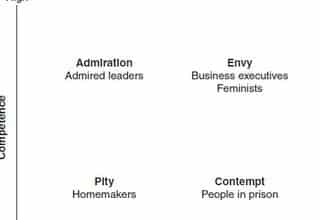Have you ever watched a game of bull-leaping? You know, the sporting event where girls (painted white) grip the horns of a bull while trying to catch the boys (painted red) who are acrobatically leaping over the bull. What about the Mexico-based sport ōllamaliztli? It’s similar to racquetball expect it ends with a player being sacrificed on the temple’s altar.
These sports amongst hundreds of others no longer exist. In Minoan Crete and Aztecan Mexico, respectively, they were a cornerstone of their culture, but an inability to remain current expunged them to the point where today historians are only scarcely aware of their existence and no one has the knowledge necessary to accurately reenact the game.
While there is no need to long for the days of ritualistically executing athletes, it is worth considering how we can learn from these all-but-forgotten sports to ensure that our organizations and well-constructed cultures avoid disappearing into obscurity.
The Olympics is one of the few internationally embraced sporting events. People like to taut its long, illustrious history, but besides the name and four year frequency, it bares little resemblance to its Greek origins. Until it was revived in the 1890s, the Olympics had not been held for 1,500 years. Once resumed, the Olympic committee discarded a few of the more archaic rules. They invited the whole world to participate (versus just the Greeks), women were welcome (versus holding their own event), athletes wore clothes (versus competing naked), races were now timed (versus just marking the winner), and they standardized the distances of races (versus changing topographies and venues).
Those in charge of the Olympics did not just modernize it by a millennium; they set a precedent where events can change or be discarded. At one time, Tug of War was a major draw. There has also been swimming obstacle races, solo synchronized swimming, and ski ballet.
The Olympics are not the only ones updating their regimes. Before every season, Major League Baseball rolls out new regulations. This year they set a time limit on how long the manager and pitcher can gather at the mound during a game and limited breaks between innings to 2½ minutes.
The National Football League also initiates annual updates, sometimes by choice and other times due to public shaming. For instance, in the midst of a public relations nightmare, they instituted additional precautions to protect the physical health of their players. Independent certified athletic trainers have been designated to notify game officials to stop the game if a player exhibits signs of disorientation and have that player evaluated by the medical staff.
The athletics of yesteryear show us what can happen when we don’t remain current. Until they vanished, these sports were played for hundreds of years. They were heavily entwined with religious rituals and were at the core of their society. In their heyday, no one could have ever suspected that they would no longer exist. Your culture is just as susceptible.
How many companies dominated their industry and are now disregarded? Remember Pan Am Airlines? Tower Records? Circuit City? Blockbuster Video? Like the extinct sports, these companies were going to be around forever…until they weren’t.
Take a page from the Olympics, don’t be afraid to discard practices that are no longer anticipated. Learn from Major League Baseball, adapt to meet the changing needs of your customers and staff. And follow the National Football League, be mindful of changes in social moray so your culture remains current. The other option is to dig in your heels, but that will just make you yesterday’s Fox Tosser (a 17th century competition to see who could through a fox the highest).







